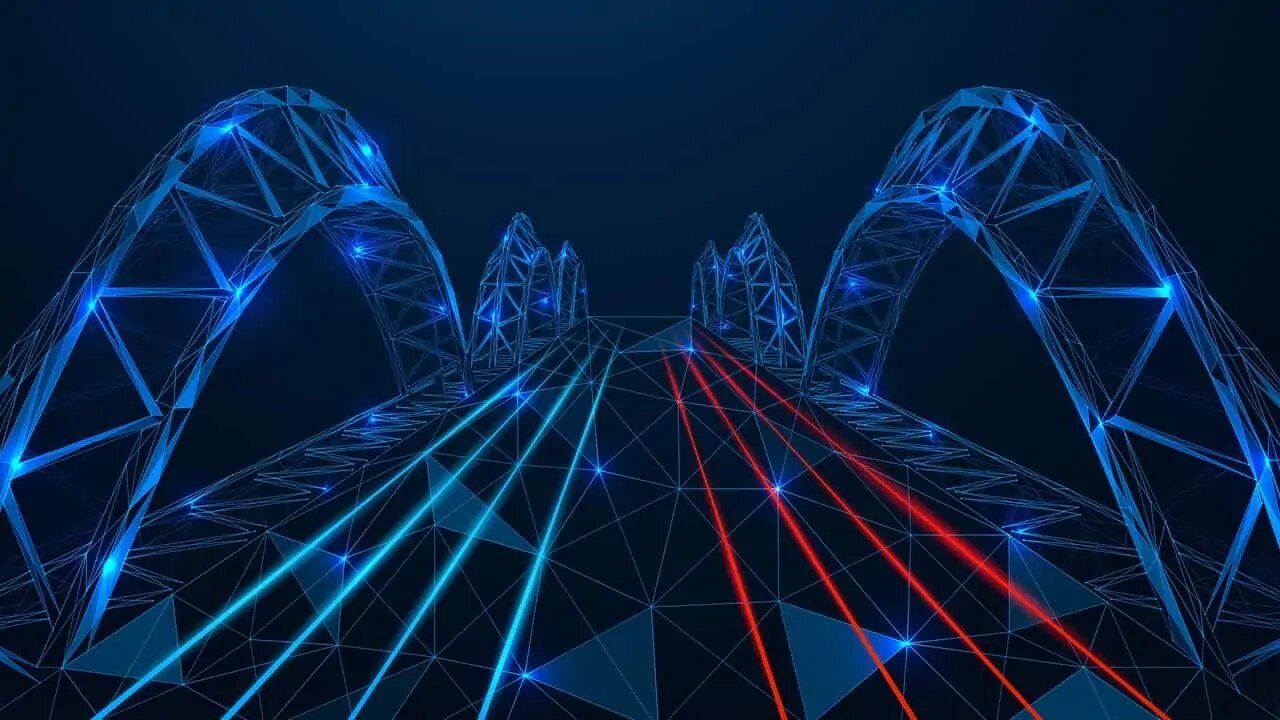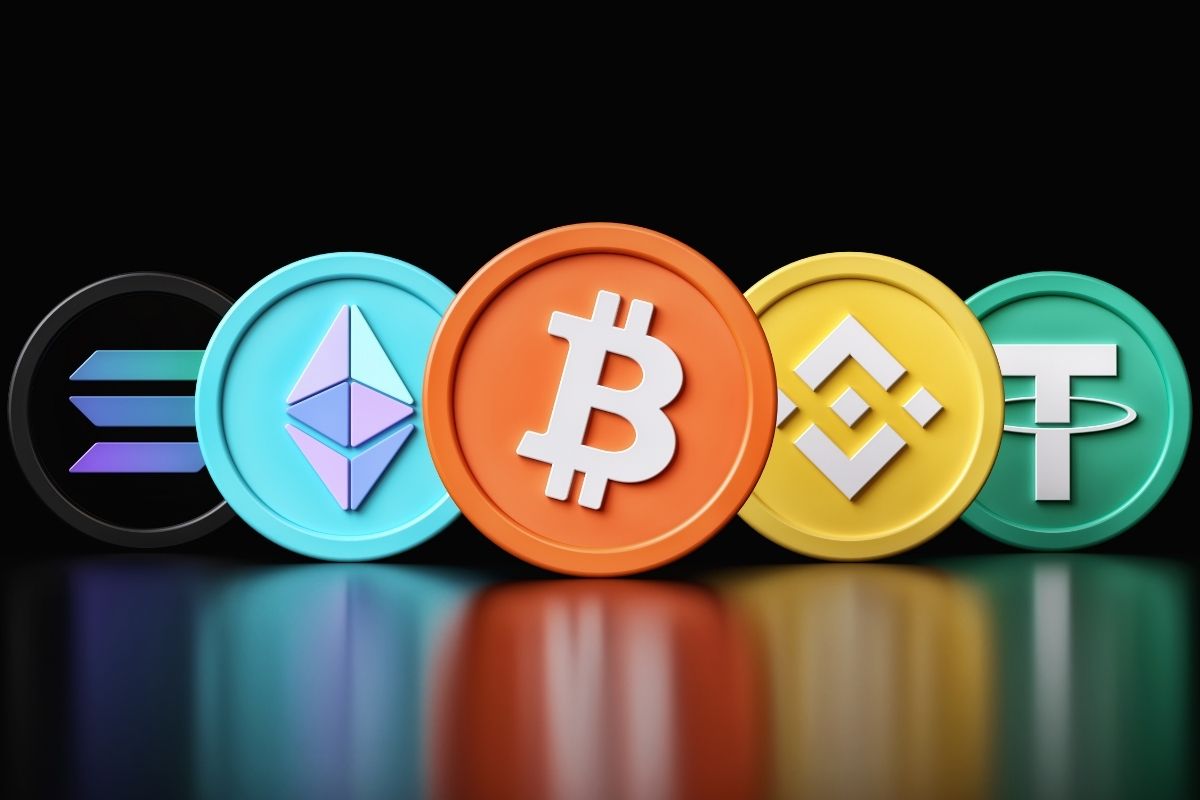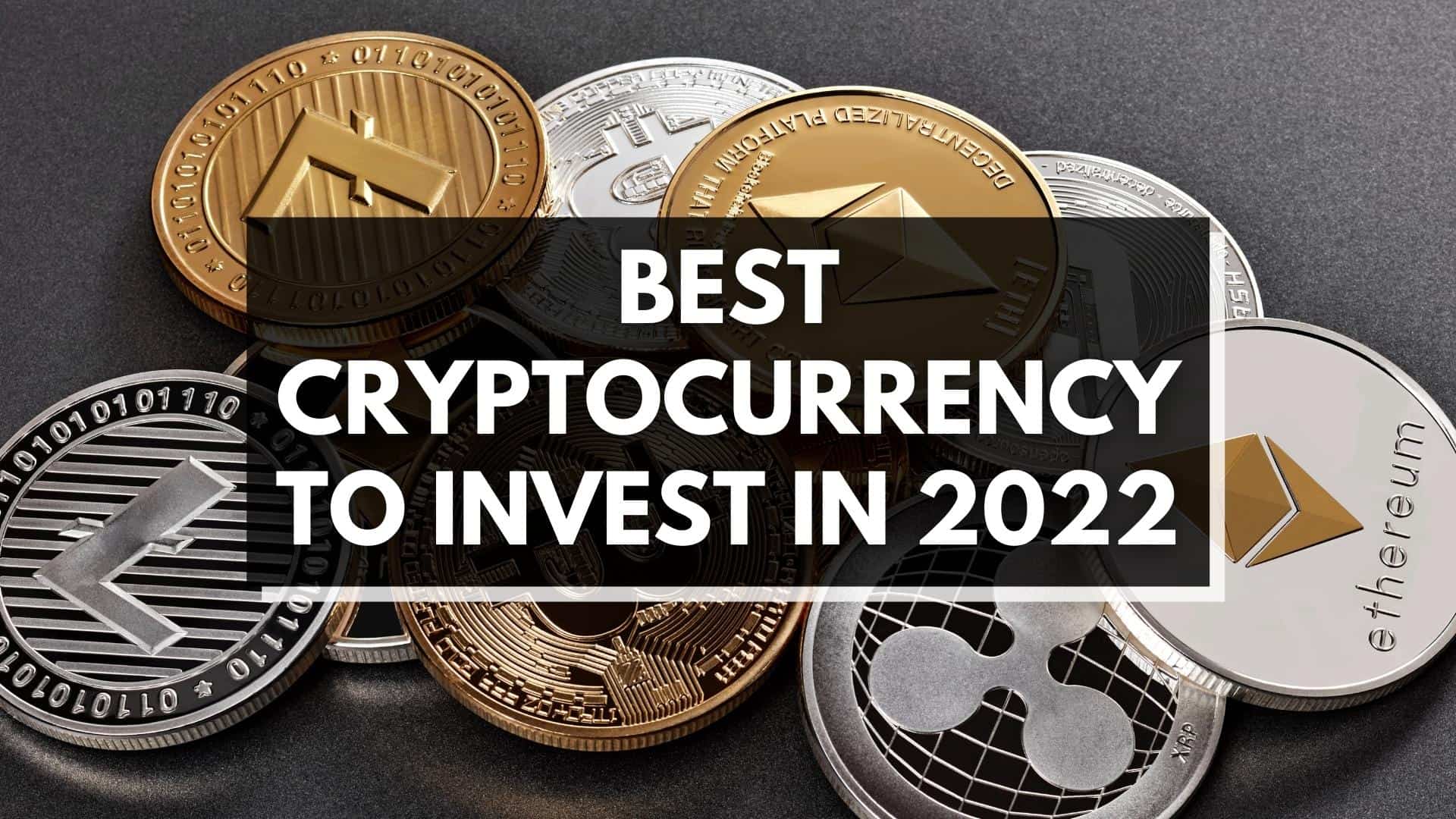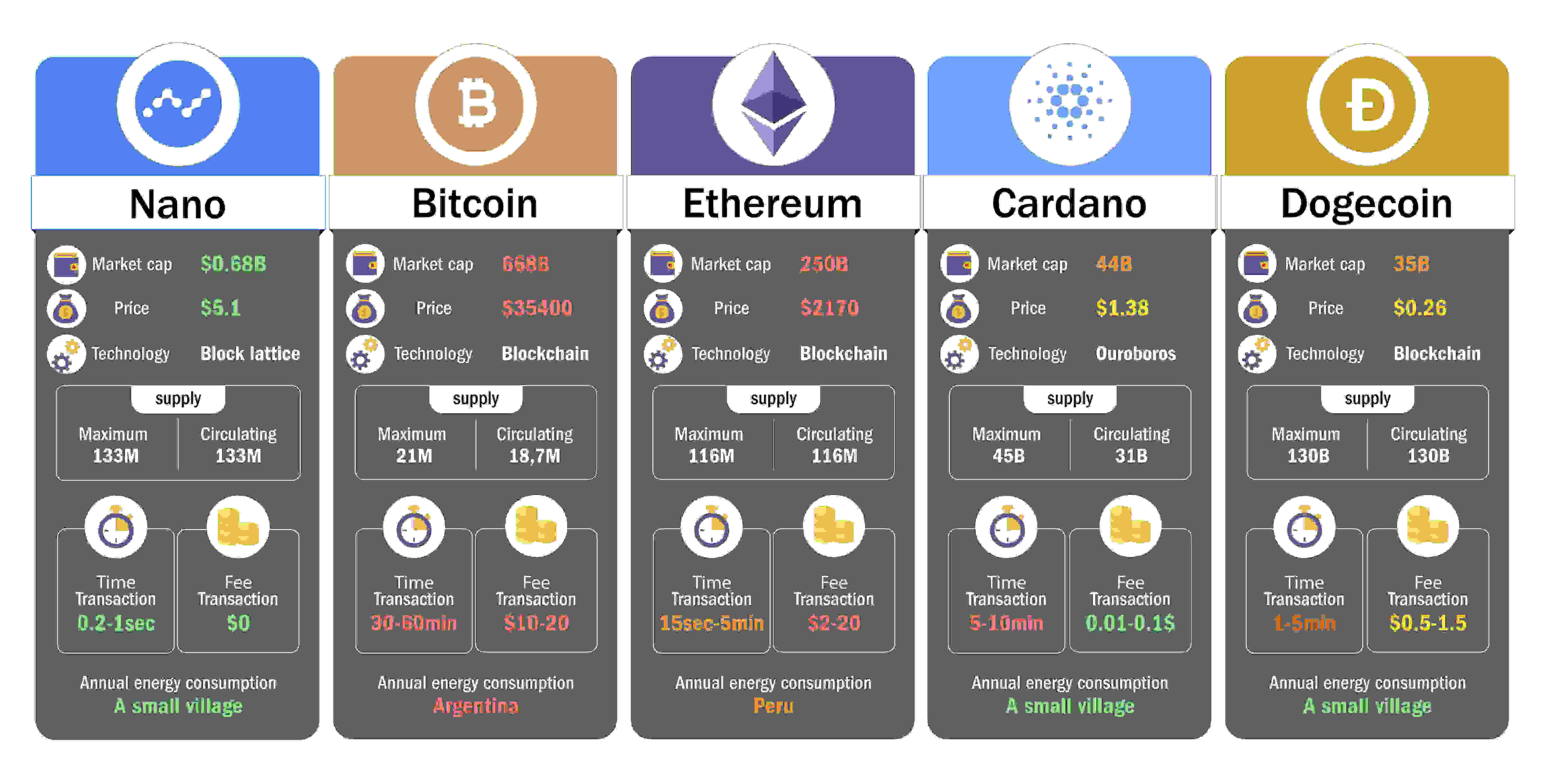What Is an Oracle in Smart Contracts
In the world of smart contracts, an oracle plays a crucial role in ensuring the seamless integration between blockchain technology and real-world data. An oracle acts as a bridge between the on-chain and off-chain worlds by providing the necessary external information and inputs to smart contracts.
An oracle can be defined as a trusted third party or a service that verifies and delivers real-world data to smart contracts. It acts as a reliable source of information that smart contracts rely on to make informed decisions and execute predefined actions. Essentially, an oracle serves as a data feed for smart contracts, enabling them to access and interact with data that exists outside the blockchain network.
Smart contracts, by themselves, are self-executing agreements written in code, which automatically execute when certain pre-defined conditions are met. While smart contracts are secure and tamper-proof, they lack the ability to access real-time external data on their own. This is where oracles come into play, acting as intermediaries that gather, validate, and deliver the required data to the smart contracts.
Oracles can connect blockchain applications to real-world data sources such as market prices, weather updates, election results, sports scores, and various APIs. They fetch this external information and provide it to the smart contracts, as and when needed, in a secure and reliable manner.
One important aspect of oracles is their ability to provide data that is considered trustworthy and accurate. To accomplish this, oracles often undergo a verification process to ensure the integrity and reliability of the data they provide. This verification process may involve multiple data sources, consensus mechanisms, or even reputation systems to establish trust. The goal is to minimize the risk of malicious or inaccurate data being fed to the smart contracts, which could potentially lead to undesired outcomes.
Overall, oracles play a vital role in expanding the functionality and flexibility of smart contracts by connecting them to the vast amount of real-world data and services. They enable smart contracts to interact with external systems and make decisions based on real-time information, thus broadening the scope and applicability of blockchain technology.
Introduction
Blockchain technology has attracted significant attention and transformed various industries with its decentralized and transparent nature. One of the key applications of blockchain technology is the use of smart contracts, which are self-executing agreements written in code. Smart contracts enable parties to transact without the need for intermediaries, ensuring efficiency, security, and trust in business operations.
However, while smart contracts are powerful tools, they have a limitation – they cannot access real-world data directly. Smart contracts operate in a closed, self-contained environment, unable to fetch information from external sources. This is where oracles come into the picture to provide a solution.
An oracle acts as a link between the blockchain network and real-world data, serving as a trusted source that retrieves and delivers external information to smart contracts. They validate and provide data about happenings and events in the external world, which smart contracts can then utilize to make decisions and execute actions accordingly.
In simple terms, an oracle is a mediator that enables the interaction of smart contracts with real-time external data and services. By connecting blockchain applications to real-world information, oracles enhance the capabilities and functionality of smart contracts, enabling them to fulfill a wide range of use cases.
Oracles play a vital role in expanding the scope and applicability of blockchain technology. They enable smart contracts to access and utilize data from various sources such as APIs, IoT devices, web services, and more. This opens up possibilities for smart contracts to automate processes, settle agreements, and interact with the physical world in ways previously unimagined.
In this article, we will explore the concept of oracles in the context of smart contracts. We will delve into the role they play, how they function, the types of oracles available, and the advantages and disadvantages of using them. We will also examine some real-world examples of oracles in smart contract applications.
Join us on this journey to discover the importance and impact of oracles in the world of smart contracts, and how they contribute to the evolution of blockchain technology.
What are Smart Contracts
Smart contracts are self-executing agreements written in code that automatically execute predefined actions when certain conditions are met. They operate on the blockchain, ensuring transparency, security, and efficiency in business transactions without the need for intermediaries.
Unlike traditional contracts that rely on human intervention and enforcement, smart contracts are decentralized and tamper-proof. They eliminate the need for trust in a centralized authority by relying on cryptographic algorithms and consensus mechanisms inherent in the blockchain.
Smart contracts are built on the principles of transparency and immutability. Once deployed on the blockchain, they cannot be modified or tampered with, providing a high level of trust and assurance to all parties involved in the contract.
These contracts can be programmed to perform a wide range of tasks and operations. They can handle the transfer of digital assets, facilitate escrow services, automate supply chain processes, execute conditional payments, and more. The possibilities are vast and diverse.
To understand smart contracts, it is essential to grasp some key concepts. Firstly, they operate using a set of predetermined rules and conditions encoded in the contract. These rules define the triggers and actions that the contract will execute based on the specified conditions.
Secondly, smart contracts rely on the blockchain network to validate and execute transactions. The decentralized nature of the blockchain ensures that all parties have access to the same version of the contract, eliminating the need for intermediaries and reducing the risk of fraud or manipulation.
Finally, smart contracts can interact with other smart contracts, allowing for complex, interconnected workflows and processes. This enables the development of decentralized applications (dApps) that leverage the power and security of smart contracts.
Overall, smart contracts represent a paradigm shift in how agreements and transactions are executed. By automating processes and removing intermediaries, they offer increased efficiency, reduced costs, and improved trustworthiness. As blockchain technology continues to evolve, smart contracts will play a pivotal role in transforming various industries and redefining how business is conducted.
The Role of Oracles in Smart Contracts
Oracles play a vital role in the integration of blockchain technology and real-world data in smart contracts. They act as a bridge, enabling smart contracts to access and interact with information that exists outside the blockchain network. The role of oracles can be summarized into two main functions: data input and trigger execution.
Firstly, oracles provide the necessary data input to smart contracts. Smart contracts, by themselves, do not have the ability to access real-time external information. Oracles fetch data from various sources, such as APIs, web services, sensors, and other external systems, and feed it to smart contracts in a format they can understand. This data input can include real-world events, market prices, weather updates, sports scores, and other relevant data that the smart contract requires to execute its predefined actions.
Secondly, oracles act as triggers for executing actions within smart contracts. They monitor and verify real-world conditions or events, and when certain predefined conditions are met, they trigger the execution of the corresponding actions within the smart contract. This allows smart contracts to respond dynamically to real-time changes and events, enabling them to adapt and perform the necessary actions based on external circumstances.
Oracles perform these functions securely and reliably by integrating various mechanisms to ensure the accuracy and trustworthiness of the data they provide. These mechanisms can include multiple data sources, consensus algorithms, reputation systems, and cryptographic techniques. By implementing these measures, oracles strive to minimize the risks associated with inaccurate or malicious data being fed to the smart contracts.
The role of oracles is crucial in enabling smart contracts to interact with the physical world and make informed decisions based on real-world data. They bridge the gap between blockchain technology and external systems, expanding the capabilities and applicability of smart contracts. With oracles, smart contracts can become more versatile and adaptable, allowing for a wide range of use cases and unlocking the potential of blockchain technology in areas such as financial services, supply chain management, insurance, and many others.
In the next section, we will dive deeper into how oracles work in smart contracts, exploring their mechanisms and the different types of oracles available.
Understanding Oracles
To fully comprehend the role of oracles in smart contracts, it is important to understand the key elements and characteristics of oracles themselves.
Firstly, an oracle serves as a trusted source of external information for smart contracts. It collects, verifies, and delivers real-world data that smart contracts rely on to make decisions and execute predefined actions. Oracles can connect with a wide range of data sources, including APIs, web services, IoT devices, and other external systems, ensuring a diverse and comprehensive flow of information.
Secondly, oracles play a critical role in ensuring the integrity and trustworthiness of the data they provide. They undergo a verification process to establish the reliability of the data they fetch. This verification process can involve consensus mechanisms, multiple data sources, reputation systems, and other validation techniques. By implementing these measures, oracles strive to minimize the risk of fraudulent or inaccurate data being fed into smart contracts, which could potentially lead to undesired outcomes.
Furthermore, oracles can provide real-time data to smart contracts, allowing them to interact and respond dynamically to changing external conditions. This capability empowers smart contracts to adapt and execute actions based on real-time information, enhancing their versatility and applicability across various industries and use cases.
It is worth noting that oracles can introduce a certain level of centralization and reliance on trusted third parties. As oracles act as intermediaries between the on-chain and off-chain worlds, there is inherent dependence on their capability and trustworthiness. In some cases, multiple oracles can be used to increase redundancy and reliability. Additionally, new advancements in decentralized oracle networks aim to address these concerns by providing decentralized and trustless oracle solutions.
Overall, understanding oracles is crucial to grasp the significance of their role in linking blockchain technology with real-world data. Oracles enable smart contracts to access and utilize external information, expanding their capabilities and facilitating automation in a wide range of applications. By ensuring the integrity and real-time nature of the data they provide, oracles contribute to the trustworthiness and efficiency of smart contract operations.
In the next section, we will explore how oracles work within smart contracts, examining their mechanisms and the different types of oracles that exist.
How Do Oracles Work in Smart Contracts
Oracles play a crucial role in connecting smart contracts with real-world data, enabling them to access and interact with external information. Understanding how oracles work within smart contracts is essential to grasp their functionality and the flow of data between the blockchain network and external systems.
When a smart contract needs external data, it sends a request to an oracle. The request specifies the type of data required and any additional parameters. Oracles receive these requests and retrieve the relevant data from external sources, such as APIs or web services. They fetch the data and format it in a way that is compatible with the smart contract’s programming language.
Once the data is received, the oracle verifies its validity and accuracy. This verification process ensures that the data is trustworthy and has not been tampered with. Oracles use various mechanisms to validate the data, such as consensus algorithms, multiple data sources, or reputation systems. This step is crucial to maintain the integrity of the data being provided to the smart contract.
After the data is verified, the oracle delivers it to the smart contract, which can then utilize it to execute predefined actions or make decisions. The smart contract can perform calculations, compare values, trigger other smart contracts, and more, based on the received data. The actions taken by the smart contract are determined by the programming logic and the conditions specified within the contract itself.
It’s important to note that oracles can also provide data in real-time. They continuously monitor and update the data, ensuring that the smart contract has access to the most current information. This real-time capability allows smart contracts to react and adapt dynamically based on changing external conditions.
Security is a vital aspect of oracles’ functioning in smart contracts. Oracles need to ensure that the data they provide is secure, reliable, and free from manipulation. They can employ cryptography and encryption techniques to protect the data while in transit and at rest. Additionally, oracles may implement measures such as data aggregation and cross-validation to reduce the risk of inaccurate or malicious information being fed to the smart contract.
As the adoption of smart contracts and blockchain technology continues to grow, advancements in oracle technology are also evolving. Decentralized oracle networks (DONs) aim to address the concerns regarding centralization and trusted third parties by providing decentralized and trustless oracle solutions. These networks leverage decentralized consensus mechanisms and reputation systems to deliver reliable data to smart contracts in a trustless manner.
In the following section, we will explore the different types of oracles that exist and delve into their respective functionalities and use cases.
Types of Oracles
Oracles come in various types, each with its own characteristics and functionalities. Understanding the different types of oracles is essential in choosing the most suitable one for a specific smart contract application. Here are some common types of oracles:
1. Software Oracles: Software oracles utilize software algorithms to collect and interpret data from external sources. They extract information from websites, APIs, and other digital platforms, transforming the data into a format that can be understood by smart contracts. Software oracles are versatile and can fetch various types of data, such as exchange rates, weather conditions, and social media metrics.
2. Hardware Oracles: Hardware oracles connect the physical world to smart contracts by gathering data from hardware devices and sensors. These oracles can access information from Internet of Things (IoT) devices, such as temperature sensors, GPS trackers, and RFID readers. Hardware oracles are commonly used in supply chain management, logistics, and environmental monitoring applications.
3. Inbound Oracles: Inbound oracles focus on providing real-time data to smart contracts. They continuously monitor and update the information they deliver, ensuring that the smart contract has access to the most current and accurate data. Inbound oracles are vital for applications that require real-time data, such as financial transactions, sports betting, and dynamic pricing systems.
4. Outbound Oracles: Outbound oracles enable smart contracts to trigger actions in external systems or off-chain processes. They transmit data from the smart contract to external systems, initiating actions or updating records in response to certain conditions being met. Outbound oracles are used in scenarios like automated payments, inventory management, and cross-platform integrations.
5. Consensus Oracles: Consensus oracles ensure the accuracy and reliability of data inputs by aggregating information from multiple sources and reaching a consensus. They use consensus algorithms or reputation systems to assess the credibility of each data source and consolidate the data into a single trusted feed. Consensus oracles are commonly used in applications that require highly reliable and tamper-resistant data, such as financial markets and prediction markets.
6. Decentralized Oracles: Decentralized oracles aim to address the concerns of centralization and single points of failure in oracle systems. These oracles leverage decentralized oracle networks (DONs) and blockchain technology to distribute the oracle functionality across a network of participants. They use consensus mechanisms, such as token staking or proof-of-authority, to collectively validate and deliver data to smart contracts without relying on a central authority.
The choice of oracle type depends on the specific requirements of the smart contract application. Factors to consider include the type of data needed, the level of security and trust required, real-time data requirements, and the potential risk of manipulation or tampering. By selecting the appropriate oracle type, developers can ensure the reliability, accuracy, and efficiency of their smart contract applications.
In the next section, we will examine the advantages and disadvantages of using oracles in smart contracts, providing a comprehensive view of their benefits and potential challenges.
Pros and Cons of using Oracles in Smart Contracts
Oracles play a crucial role in empowering smart contracts to interact with the real world and access external data. However, like any technology, there are both advantages and disadvantages to using oracles in smart contracts. Let’s explore some of the main pros and cons:
Pros:
- Access to External Data: Oracles enable smart contracts to access real-time external data, expanding their functionality and use cases. This allows for automation, decision-making based on real-world information, and integration with existing systems.
- Versatility and Flexibility: By using oracles, smart contracts can interact with various data sources, such as APIs, IoT devices, and sensors. This versatility opens up possibilities for a wide range of applications across industries, including finance, supply chain management, insurance, and more.
- Real-Time Updates: Oracles provide real-time data to smart contracts, allowing them to react and adapt dynamically to changing external conditions. This enables real-time decision-making and the execution of actions based on up-to-date information.
- Verification and Validation: Oracles implement mechanisms to verify and validate the data they provide. This helps ensure the integrity and accuracy of the information fed to smart contracts, reducing the risk of unreliable or fraudulent data impacting contract execution.
- Increased Security: Oracles can incorporate encryption and cryptographic techniques to secure the data transmitted between external sources and smart contracts. This enhances the security and privacy of sensitive information involved in contract execution.
Cons:
- Centralization Concerns: Depending on the type of oracle used, there may be a level of centralization and reliance on a trusted third party. This introduces a potential single point of failure or vulnerability that could impact the reliability and trustworthiness of the oracle system.
- Data Quality and Manipulation: The accuracy and quality of data provided by oracles can be a concern. If an oracle receives manipulated or inaccurate data from external sources, it could lead to undesired outcomes or faulty decisions made by smart contracts.
- Dependency on Third Parties: Smart contracts relying on oracles are inherently dependent on the functioning and reliability of the oracle service provider. If the oracle experiences downtime or technical issues, it could impact the execution of smart contract actions and disrupt the intended workflow.
- Costs and Maintenance: Implementing and maintaining an oracle system can involve costs, both in terms of infrastructure and ongoing maintenance. Depending on the complexity and scale of the smart contract application, the costs associated with using oracles may need to be carefully considered.
Understanding the pros and cons of using oracles in smart contracts is essential to make informed decisions and mitigate potential risks. While oracles offer significant benefits in terms of data access, functionality, and real-time updates, it’s important to address concerns regarding centralization, data quality, reliability, and ongoing maintenance.
In the following section, we will explore real-world examples of oracles in smart contracts, showcasing their real-world applications and demonstrating their impact on different industries.
Examples of Oracles in Smart Contracts
Oracles have been successfully integrated into numerous smart contract applications, revolutionizing industries and enabling new functionalities. Here are some examples of how oracles are being utilized:
Financial Services: Oracles are extensively used in decentralized finance (DeFi) applications. They provide real-time price data for cryptocurrencies, allowing smart contracts to perform automated trades, execute decentralized lending and borrowing protocols, and calculate interest rates based on market conditions.
Supply Chain Management: Oracles play a vital role in tracking and verifying the movement of goods across a supply chain. They can fetch data from IoT devices and sensors to monitor temperature, location, and other relevant information. Smart contracts can then automatically trigger actions such as payment transfers, quality assurance, and inventory management based on the received data.
Insurance: Oracles enable smart contracts to provide parametric insurance solutions, particularly in the realm of weather or flight delay insurance. Oracles fetch real-time weather data or flight delay information and trigger the automatic payment of insurance claims when pre-defined conditions are met.
Real Estate Transactions: Oracles can verify the authenticity of property records and titles, ensuring transparency and trust in real estate transactions. By integrating with external registries and government databases, oracles provide up-to-date property information, allowing smart contracts to automate portions of the purchasing process, such as the transfer of ownership and the release of funds.
Sports Betting: Oracles deliver real-time sports scores and statistics to smart contracts, enabling the automation of sports betting platforms. Smart contracts use this data to determine the outcomes of bets and automatically distribute winnings to the respective participants.
Decentralized Marketplaces: Oracles facilitate trust in decentralized marketplaces by providing external data on product prices, ratings, and reviews. This allows smart contracts to enforce transparent and fair transactions based on reliable information, enhancing the trustworthiness of peer-to-peer interactions.
These are just a few examples of how oracles are utilized in smart contracts across various industries. As the technology evolves, the potential for oracle integration in diverse applications continues to expand.
It’s worth noting that oracle systems are not limited to a single type or implementation. Depending on the specific use case and requirements, different oracle types, such as software oracles, hardware oracles, or decentralized oracle networks, can be employed to meet the unique needs of a particular application or industry.
In the concluding section, we will summarize the importance of oracles in smart contracts and the significant impact they have on the adoption and advancement of blockchain technology.
Conclusion
Oracles play a crucial role in bridging the gap between blockchain technology and the real world in smart contracts. They enable smart contracts to access and interact with real-time external data, expanding their capabilities and use cases across various industries.
By providing data input and trigger execution, oracles empower smart contracts to make informed decisions, automate processes, and integrate with existing systems. They ensure the integrity and reliability of the data they provide through verification mechanisms, such as consensus algorithms and multiple data sources.
There are various types of oracles available, including software oracles, hardware oracles, consensus oracles, inbound oracles, outbound oracles, and decentralized oracles. Each type has its own functionalities and use cases, catering to different requirements of smart contract applications.
While oracles offer significant benefits, including access to external data, versatility, real-time updates, verification, and increased security, they also present challenges such as centralization concerns, data quality, dependency on third parties, and associated costs.
Real-world examples demonstrate the impact of oracles in various industries, such as financial services, supply chain management, insurance, real estate, sports betting, and decentralized marketplaces. Oracles enhance transparency, efficiency, and trust in these applications, enabling automation and seamless interaction with the real world.
As blockchain technology continues to evolve, oracles will remain a crucial component in unlocking the full potential of smart contracts. They will play a vital role in broadening the scope of blockchain applications, fostering innovation, and transforming industries.
By understanding the roles, types, benefits, and challenges associated with oracles, developers and businesses can make informed decisions when integrating oracles into their smart contract applications. As advancements in oracle technology and decentralized oracle networks proliferate, the reliability, scalability, and trustlessness of oracles will continue to improve, further advancing the adoption and impact of blockchain technology.

























